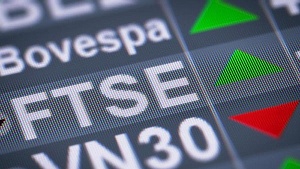Vietnam’s stock market poised for growth this year
Notably, the market has seen more years of outstanding growth than decline, with successful investment opportunities exceeding 70 per cent of the time. This historical performance suggests that market downturns often present prime opportunities for investors to increase their stakes.
 |
| Le Anh Tuan, investment director, Dragon Capital |
Recent observations have pointed to the VN-Index oscillating around 1,100 points over the past 20 years, leading to a misconception that stock market investments are not profitable. However, a closer examination reveals a stark difference in the nature of the 1,100-point threshold. The 2007 peak, part of a bubble, saw the market’s price-to-earnings (P/E) ratio at a staggering 50 times, and the price-to-book (P/B) ratio at 8.5.
In contrast, the current 1,100-point level represents the start of a new growth cycle for the stock market, with significantly lower P/E and P/B ratios at 13 and 1.6 times, respectively. This current valuation presents a far more attractive investment opportunity compared to 2007, with promising potential for market growth in the next five years.
Vietnam’s stock market has encountered a landscape of modest recovery, tempered by the absence of robust corporate earnings. This scenario sets the stage for a critical juncture in 2024, characterised by strategic decisions from the State Bank of Vietnam (SBV) and the financial sector’s response to these policies.
In our scenario, we hold that in a low-interest-rate environment, expectations of dramatic shifts in the stock market, exceeding 15-20 per cent, remain unfounded. This stance is rooted in a historical analysis of the 2013-2018 period, where despite fluctuations, the market did not experience a decline over 20 per cent.
Looking ahead to 2024, Dragon Capital zeroes in on three fundamental drivers: the nuances of monetary policy, the macroeconomic and political stability, and a pivot towards growth, defined not by GDP figures but by its translation into tangible corporate profits and real economic activities.
On the other hand, monetary policy remains at the forefront. With lending and deposit rates hovering below pandemic-era levels, we project a further dip in interest rates in the next 4-5 months, despite them already being at historic lows. This forecast aligns with the interplay between interest rates and inflation. Given the current tepid pace of economic recovery and manageable inflation levels, there appears to be sufficient leeway for an accommodative monetary policy to bolster growth.
The global central banking landscape also influences Vietnam’s market dynamics. The stock market’s surge in 2021 was a product of not just Vietnam’s monetary policy but a concerted direction among global central banks. Recent data from over 150 central banks indicates a shift towards more rate cuts than hikes, suggesting a broader trend towards declining interest rates.
The second critical element is exchange rate stability. Dragon Capital advises a broader perspective beyond foreign direct investment and trade balance figures. With the general populace holding an estimated $50 billion to $100 billion, compared to the banking sector’s $6-7 billion in assets and liabilities, the SBV’s ability to manage public sentiment becomes pivotal in stabilising the exchange rate. A predicted ±3 per cent fluctuation in 2024 would reflect the economy’s inherent stability.
On the economic recovery front, conventional GDP metrics are deemed insufficient. Alternative indicators like container shipping volumes and electricity consumption provide a more granular view of economic health. Both metrics indicate a recovery trend, with electricity consumption rebounding to a 3.3 per cent growth in 2023, after a 1.1 per cent decline in the initial quarters.
For the stock market in 2024, Dragon Capital anticipates a continuation of growth-favouring monetary policies. A notable market downturn is unlikely, with corporate profits expected to recover within 9-12 months following the record-low interest rates noted around October 2023. In terms of market performance, we forecast a 30 per cent increase, predicated on a 20 per cent rise in corporate profits. The inflow of domestic capital into the stock market is characterised as robust and sustainable, as opposed to speculative inflows. As for investment opportunities, 2024 presents a brighter outlook compared to the preceding year. The VN-Index, currently in a recovery cycle, is buoyed by low interest rates, macroeconomic stability, and nascent profit growth.
As the market trends upwards, nearly all stock groups stand to benefit. We are particularly optimistic about the real estate and banking sectors. The real estate sector is expected to warm up in 2024, with market liquidity in the third and fourth quarters already showing signs of recovery. The banking sector is anticipated to lead profit growth in 2024, with an expected increase of 15-20 per cent.
With predictions of a real estate market rebound, bad debts in banks are likely to be well-managed, and credit demand is expected to rise. Alongside profit growth, attractive valuations also spotlight banking stocks as promising investments.
The securities stock group is also on a recovery path, maintaining profit growth and market liquidity. However, their valuations are no longer as attractive as before, possibly moderating the pace of their recovery.
 | Vietnam targets market upgrade to boost global investment profile Vietnam's government and financial regulators are actively pursuing reforms to meet international settlement standards, aiming for an upgrade from a frontier to an emerging market to attract significant global investment and strengthen the nation's credit standing. |
 | Stock market offers promising opportunities as it enters bullish cycle FinPeace organised the annual Investment Outlook 2024: Seeking Growth conference on December 17 to help investors understand the opportunities and challenges in the stock market in 2024, allowing them to formulate appropriate investment strategies. |
 | Stock markets mixed as trading year nears end Global stocks were mixed Thursday on the penultimate trading day of 2023, while oil prices fell on easing worries about shipping disruptions in the Red Sea. |
What the stars mean:
★ Poor ★ ★ Promising ★★★ Good ★★★★ Very good ★★★★★ Exceptional
Related Contents
Latest News
More News
- Private capital funds as cornerstone of IFC plans (February 20, 2026 | 14:38)
- Priorities for building credibility and momentum within Vietnamese IFCs (February 20, 2026 | 14:29)
- How Hong Kong can bridge critical financial centre gaps (February 20, 2026 | 14:22)
- All global experiences useful for Vietnam’s international financial hub (February 20, 2026 | 14:16)
- Raised ties reaffirm strategic trust (February 20, 2026 | 14:06)
- Sustained growth can translate into income gains (February 19, 2026 | 18:55)
- The vision to maintain a stable monetary policy (February 19, 2026 | 08:50)
- Banking sector faces data governance hurdles in AI transition (February 19, 2026 | 08:00)
- AI leading to shift in banking roles (February 18, 2026 | 19:54)
- Digital banking enters season of transformation (February 16, 2026 | 09:00)

 Tag:
Tag:


















 Mobile Version
Mobile Version